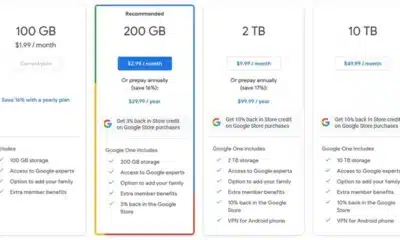Fun & Entertainment
How Telecom Companies Make Money?

In the ever-evolving landscape of technology, the role of telecommunications companies is becoming more critical. These entities act as the backbone of our increasingly digital world, providing the critical infrastructure that enables everything from our day-to-day communication to our internet access. Understanding how telecom companies generate revenue, therefore, is crucial to grasping the broader economic structure of the global digital society.
Traditional Revenue Streams for Telecom Companies
For many years, telecom companies primarily made their money from a straightforward, subscription-based model. Customers would sign up for a package of services, typically including fixed line and mobile phone service, and pay a monthly fee.
Fixed-line and Mobile Services: Traditional landline telephones were the bedrock of this system. Customers were charged for the connection (the fixed line) and then, often, for the calls they made, particularly if those calls were to numbers outside their local area or country. Mobile services followed a similar model, with customers typically paying for a bundle of voice minutes and SMS text messages.
Voice call charges, especially for international calls, were a significant revenue source. However, with the advent of VoIP services and internet calling apps like Skype and WhatsApp, this revenue stream has been under pressure. Similarly, the prevalence of instant messaging apps has reduced the relative importance of income from SMS.
Subscription-based Model: This model, while simple, has its challenges. It is highly competitive, with price wars common, particularly in markets with several providers. Moreover, it relies on adding new customers to grow revenues, which is tough in mature markets where most people already have a phone and a mobile contract.
This traditional model, while still present, has evolved dramatically with the advent of the internet and mobile data. Telecom companies have had to adapt and find new revenue sources to sustain their growth and profitability.

Revenue from Data Services
The Shift Toward Data: As the internet has become central to our lives, data – that is, internet access – has become the core product for telecom companies. Mobile data, in particular, has seen explosive growth, with smartphones becoming ubiquitous and mobile apps increasingly data-hungry.
Broadband connections, both wired (DSL, cable, fiber) and wireless (3G, 4G, and now 5G), are typically sold on a subscription basis. Customers pay for a certain amount of data at a particular speed. The more data and the faster the speed, the higher the price.
Tiered and Unlimited Data Plans: Many telecom companies offer tiered data plans, charging more for larger amounts of data at higher speeds. This approach allows companies to capitalize on the varying data needs of different customers.
However, some companies have started to offer unlimited data plans. These plans allow users to consume as much data as they want for a fixed monthly fee, providing predictability for both the consumer and the telecom company. The risk, of course, is that heavy data users will consume more than the company anticipates, straining the network and potentially decreasing service quality for all users.

Value-Added Services (VAS)
Understanding Value-Added Services: Value-added services, or VAS, are services that telecom companies provide beyond the standard voice and SMS services. They are designed to enhance the value of the core services and include things like voicemail, caller tunes, missed call alerts, and various data-based services.
These services often have a higher profit margin than the core services and can be a significant source of revenue. They are also a way for telecoms to differentiate themselves in a competitive market, particularly when the core services have become commodities.
Types of Value-Added Services: The types of VAS provided can vary widely. Some are related to voice services, like advanced voicemail or conferencing services. Others are related to data services, like premium content (music or video streaming, for example) or cloud storage.
Then there are services like mobile money, which have become particularly important in developing markets where many people don’t have access to traditional banking services. These services can be a major revenue source, but they require investment and partnerships, typically with financial institutions.
Equipment Sales and Leasing
Telecom companies also generate significant revenue from selling equipment – primarily mobile handsets but also things like routers for broadband connections.
Device Sales: Selling devices can be a substantial source of revenue, particularly when new, much-anticipated devices are launched. However, the profits from device sales can be lower than from service provision, as telecoms often subsidize the cost of devices to entice customers to sign up for their services.
Device Leasing Programs: Recently, many telecom companies have moved towards device leasing programs. Under these programs, customers lease their device from the telecom company rather than buying it outright. This allows the customer to get a new device for a lower upfront cost while providing a steady revenue stream for the telecom company. It also incentivizes customer loyalty, as customers typically need to return the device in good condition at the end of the lease to avoid penalties.
Enterprise Services
In addition to serving individual consumers, telecom companies also provide a variety of services to businesses, government agencies, and other large organizations.
B2B Services: These enterprise services can be a significant source of revenue and often have higher profit margins than consumer services. They range from basic connectivity (both voice and data) to more complex services like Virtual Private Networks (VPNs), cloud hosting, and data center services.
Cloud Services and IoT: With the growth of cloud computing and the Internet of Things (IoT), the opportunities in this space have increased exponentially. Many telecoms have made significant investments in these areas, with some even acquiring IT services companies to bolster their capabilities.

Advertising and Other Revenue Streams
Finally, advertising is becoming an increasingly important source of revenue for telecom companies.
Advertising: Telecom companies have access to vast amounts of data about their customers’ behavior, which can be used to target ads more effectively. While this has raised privacy concerns, it also has the potential to generate significant revenue.
Partnerships and Collaborations: Telecom companies are also exploring partnerships with other types of businesses. For example, a telecom might partner with a video streaming service, bundling the streaming service with its own offerings to make them more attractive.
The Future of Revenue Generation in Telecom
As we look to the future, several emerging trends could significantly impact how telecom companies generate revenue.
The ongoing rollout of 5G networks will enable a host of new services, particularly around the Internet of Things. Meanwhile, the increasing importance of data and privacy concerns may lead to new business models, perhaps with customers paying a premium for services that protect their data more effectively.
Conclusion
Telecom companies generate revenue through a complex blend of traditional and innovative methods, including subscriptions, data services, value-added services, equipment sales, and enterprise services. The ever-evolving technological landscape and consumer demands ensure that the telecom industry will continue to change and adapt. Staying ahead of these trends and understanding the shifting sources of revenue will be crucial for anyone interested in this key sector of our global economy.
-

 Gadgets6 months ago
Gadgets6 months agoCan Dogs Use VR Headsets?
-

 Tech6 months ago
Tech6 months agoWhat Does “Voicemail Pending” Mean?
-

 Phones5 months ago
Phones5 months agoHow Do I Know if My Phone Supports AR?
-

 Tech5 months ago
Tech5 months agoDoes Astigmatism Affect Your VR Experience?
-

 Business5 months ago
Business5 months agoHow Do You Make an AR Without Coding?
-

 Phones5 months ago
Phones5 months agoWhat To Do About That Weird Notification Sound on Android?
-

 Tech4 months ago
Tech4 months agoHow Can I Get Google Drive 1TB for Free?
-

 Phones4 months ago
Phones4 months agoHow Does SnapDrop Work? – Instant File Sharing Made Easy



















